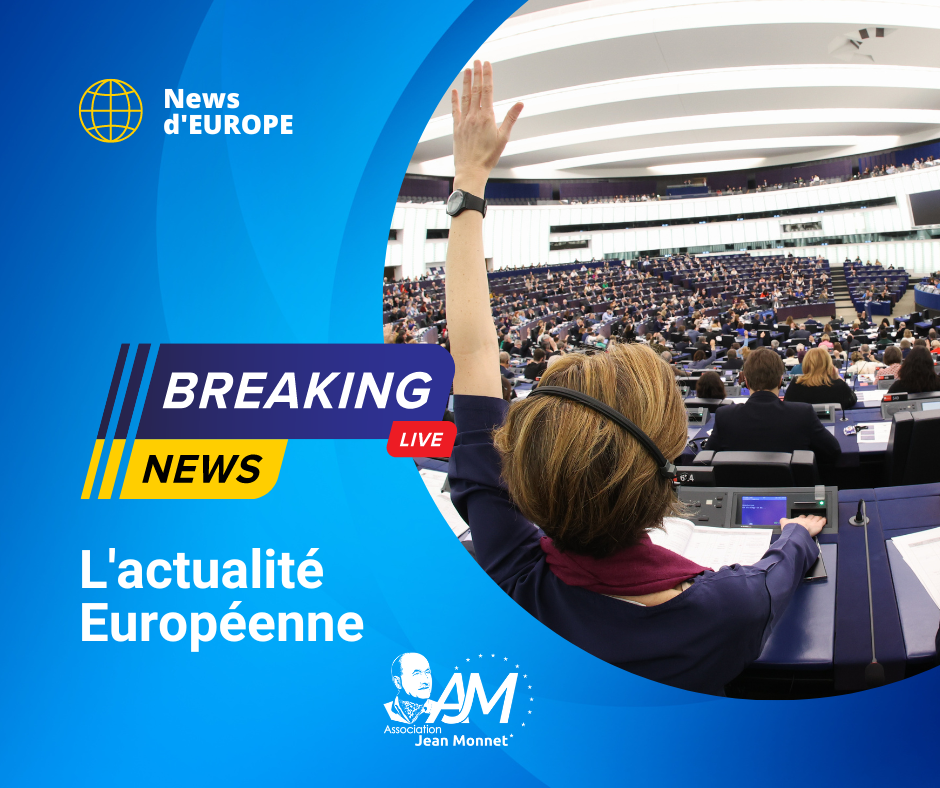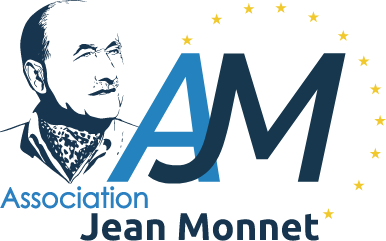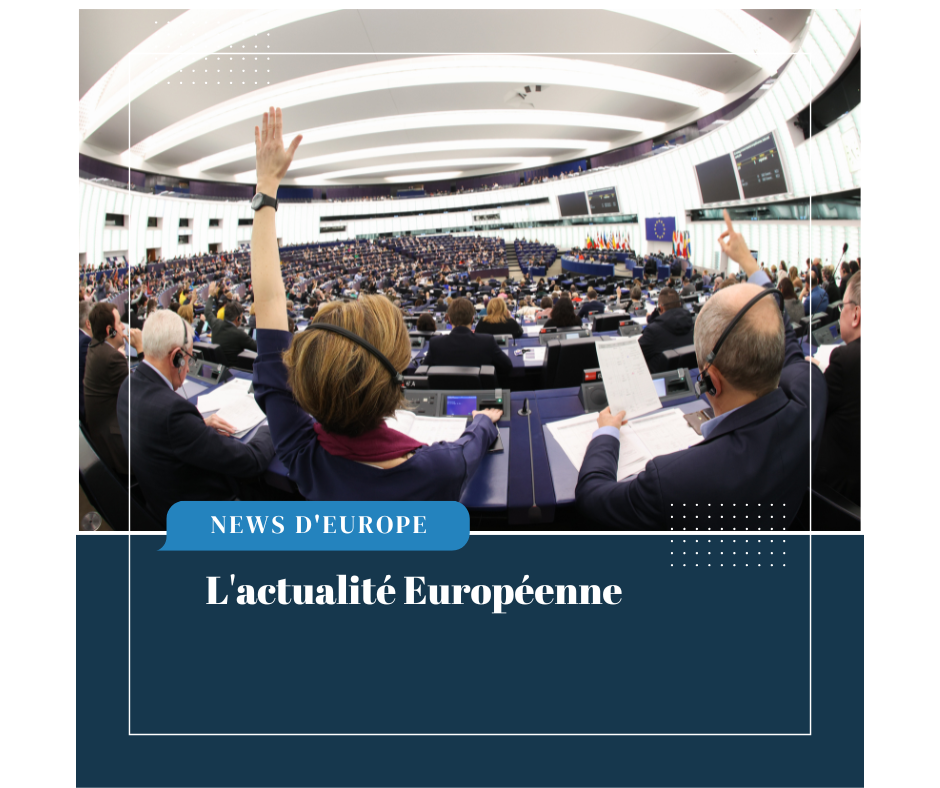by Zacharie Schaerlinger
31 March 2023

News from Europe
27 March 2023
MEPs support new single work and residence permit for third country nationals
The Civil Liberties Committee adopted by 47 votes to 13 a report updating the 2011 Single Permit Directive. This administrative procedure is common to all 27 Member States for issuing permits to third-country nationals who wish to live and work in the EU. With the entry into force of this new procedure, seasonal workers and those with temporary protection status will also be added to this permit. States will retain the power to determine the number of workers allowed to enter their country. The procedure for issuing work permits should be shortened to 90 days from the current four months, and to 45 days if the applicant is selected through a partnership to attract young talent. A final change will make it easier for workers to change employers and keep their permits during a period of unemployment of up to nine months.
Fit for 55: agreement on alternative fuel refuelling and recharging stations
A provisional agreement was reached on Tuesday between Parliament and Council negotiators. The agreement aims to provide the European Union with infrastructure for alternative fuels and electric vehicles, while bringing the EU closer to its 2050 carbon neutrality climate goals. The informal agreement sets mandatory national minimum targets for the deployment of alternative fuel infrastructure, and asks EU countries to present their plans for meeting these targets. For cars, an electric charging point must be deployed every 60 kilometres and its power must be increased to 600 kW by 2028. For buses and coaches, the power will be 1 400 to 2 800 depending on the route, every 120 kilometres. Derogations will be granted to the outermost regions, roads with low traffic volumes and overseas regions. The informal agreement also includes a place for alternative fuels. Their users must be able to pay easily at refuelling points. The agreement specifies that the price charged for "fuels" should be displayed per kWh, per minute/session or per kg, be "reasonable, easily and clearly comparable, transparent and non-discriminatory". Finally, MEPs ensured that the Commission will set up a database to inform consumers about availability, waiting times or prices at different stations.
Finally, this informal agreement still needs to be approved by the Council's Permanent Representatives Committee and the Parliament's Committee on Transport and Tourism, and then by the Parliament and Council as a whole.
Anti-coercion: agreement on principles for a trade tool to protect the EU from economic blackmail
Parliament's negotiators have succeeded in improving a draft law by strengthening the deterrent nature of an instrument to combat trade retaliation. In particular, the deadlines for applying this enforcement tool will be reduced to ensure its effectiveness in responding to an attempt at enforcement by a non-EU country. This tool is designed to protect the EU's strategic and economic interests while respecting international agreements. It aims to shield an EU country from possible economic retaliation by a non-EU country in the event of disagreement over a sovereign political decision. The Parliament's negotiators succeeded in including a list of measures for redress in the event of injury. Democratic scrutiny has been strengthened by ensuring that MEPs are kept informed at every stage, together with the Council, of a follow-up to this type of case, which could become increasingly recurrent due to the deteriorating international political climate.
The final negotiated text still needs to be agreed at a final meeting. The informal agreement will then have to be formally approved by the Parliament and the Council before it can enter into force.
New EU measures against money laundering and terrorist financing
MEPs on the Economic and Monetary Affairs and Civil Liberties, Justice and Home Affairs Committees have adopted their position on three draft pieces of legislation on EU policy financing, anti-money laundering and anti-terrorist financing provisions. This legislative package comprises three measures: The EU's "single rule book", which contains provisions on customer due diligence. The measure also aims to put an end to 'golden visas', which are used by foreign nationals to obtain an EU passport. Then there is the Sixth Anti-Money Laundering Directive, which contains national provisions on supervision and financial intelligence. Finally, there is the Regulation establishing the European Anti-Money Laundering Authority (AMLA), which has supervisory and investigative powers to combat money laundering and terrorist financing.
With these measures, several obligations will have to be fulfilled by the targeted entities. Banks, asset and crypto-asset managers, real and virtual real estate agents or top professional football clubs, will be required to verify the identity, ownership and control structure of their clients. In addition, they will have to establish a money laundering risk in their business sector and transmit this information to a central register.
Each Member State will have to set up a financial intelligence unit (FIU) to prevent, report and combat money laundering and terrorist financing. These units will be coordinated with the AMLA, Europol, Eurojust and the European Public Prosecutor. In order to act quickly, the FIUs will need to have access to information on beneficial owners, bank accounts, land or property registers, an investment that is particularly appreciated by criminal groups. Finally, MEPs want Member States to gather information on the ownership of assets such as yachts, planes and cars worth more than €200,000, or goods stored in free zones. The information will have to be centralised in a national register, in digital format, in an EU language and in English. This information should be updated and made available to FIUs, the MLA and competent authorities.
Following the latest Court of Justice ruling, MEPs decided that those with a legitimate interest can access the register, including journalists, media, civil society organisations and higher education institutions.
AMLA will monitor risks and threats inside and outside the EU and directly supervise credit and financial institutions according to their risk level. MEPs want to extend the agency's remit to high-risk third countries.
The European Parliament will be ready to start negotiations on the AML/CFT legislative package after confirmation at an April plenary session.
Renewable energy: MEPs reach agreement with Council to encourage use of green energy
MEPs and the Swedish Council Presidency want to increase the share of renewable energy in the EU's final energy consumption to 42.5% by 2030. Member States should strive to reach 45% of renewable energy production. They argue that this target would reduce the share of GHGs in transport by 14.5%. More emphasis should be given to biofuels and hydrogen. In addition, an indicative target of at least 5% of renewable energy should be respected for all new project developments. MEPs also called for stricter regulation of biomass, to avoid the EU subsidising unsustainable practices.
The informal agreement must now be approved by the Parliament and the Council to enter into force.
European Defence Fund: €1.2bn to boost EU defence capabilities and innovation
The Commission has adopted the third annual work programme under the European Defence Fund, which allocates €1.2 billion to collaborative defence research and development projects between EU Member States. The fund aims to increase intra-European defence partnerships and will also strengthen industrial competitiveness to foster interoperability across Europe. The 2023 programme focuses on necessary defence technologies and capabilities, which correspond to the EU's capability priorities as specified in the strategic compass. The programme addresses several themes: space surveillance, development of the European patrol corvette, new generations of tanks, development of air carriers. All these ambitions are accompanied by a substantial budget, which aims to support SMEs and research organisations for non-thematic R&D. Their financial means have been increased by 50 % compared to 2022. Until 2027, the European Commission aims to generate up to 2 billion euros of investment in defence innovation. The EDF is an asset in this respect, since it enables, among other things, the creation of partnerships between European industrialists, and the promotion of market entry and development of SMEs, which sometimes do not have the necessary resources to achieve this. The EU has also developed another programme, the EUDIS (EU Defence Innovation Scheme), which focuses specifically on innovation. Where the EDF sponsors inter-European projects in the defence field, EUDIS aims above all to improve European R&D on synergies between the civil, space and defence industries. It goes beyond the EDF as it addresses innovations that are aimed at the civilian sectors, but which are nevertheless essential to ensure the Union's independence.
Next Generation EU: Recovery and Resilience Facility disbursements pass €150 billion mark
150 billion to Member States under the Recovery and Resilience Facility (RRF). This financial instrument is at the heart of the Next Gen EU plan with a budget of €800 billion. The RRF aims to support transformative reforms and investments in Member States, but also to accelerate the ecological and digital transition. The Commission has also set up an interactive digital map of the projects supported by the RIF to increase its transparency and show civil society the concrete impacts of the plan. Under the RRF, states receive funding once the pre-determined milestones and targets have been met. However, the Commission clarifies that the inclusion of a specific reform or investment on the map does not necessarily imply that the Member State has already received RIF funding related to that project. The map will help users to observe reforms implemented by other members, such as Spain's introduction of a new tax on single-use plastic packaging, the simplification of authorisation procedures for the installation of renewable energy in Greece or an anti-corruption reform in Croatia. This map currently lists 250 projects. It collects projects according to the status of their implementation and the map is comprehensive and based on information made public by Member States.






